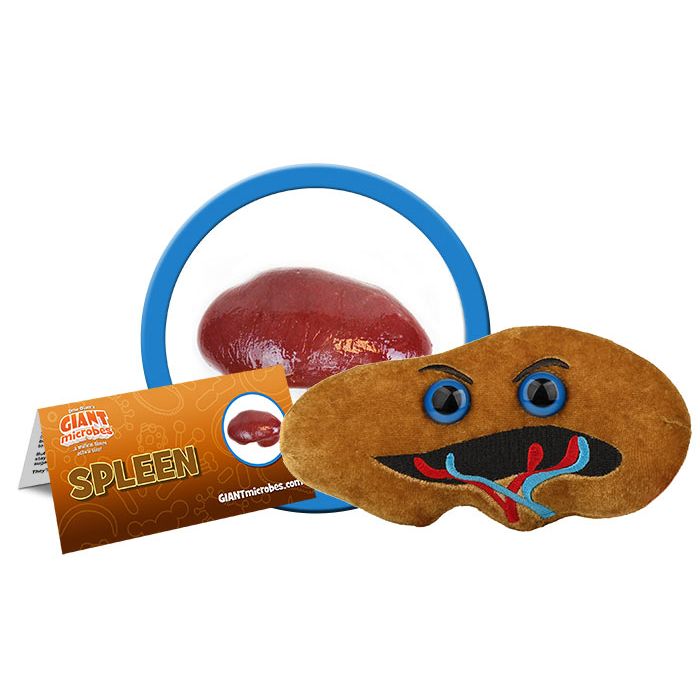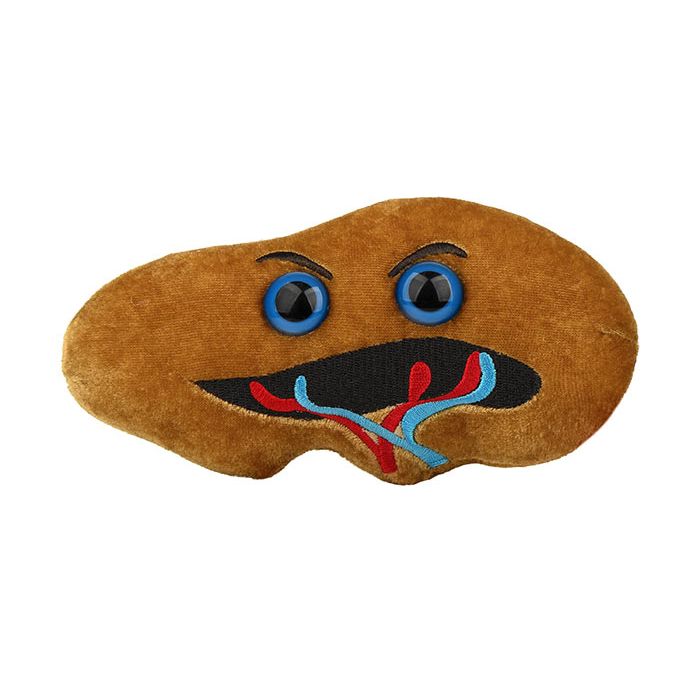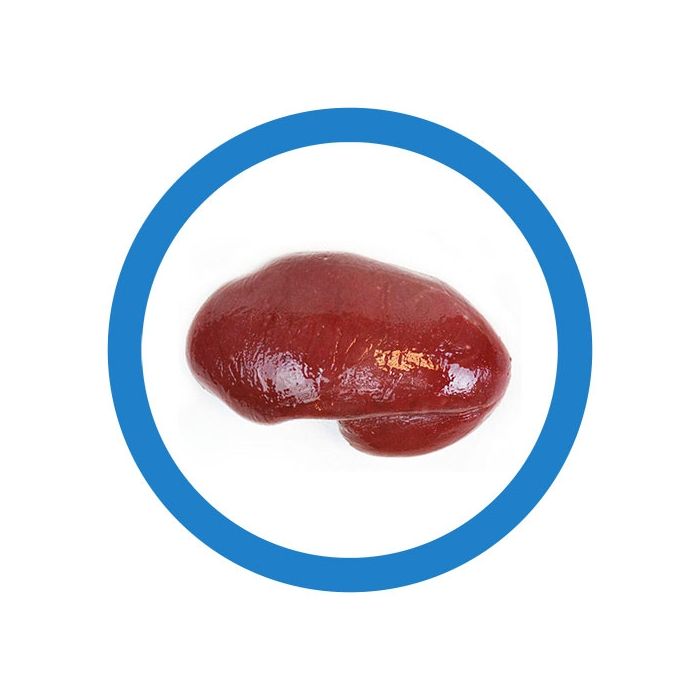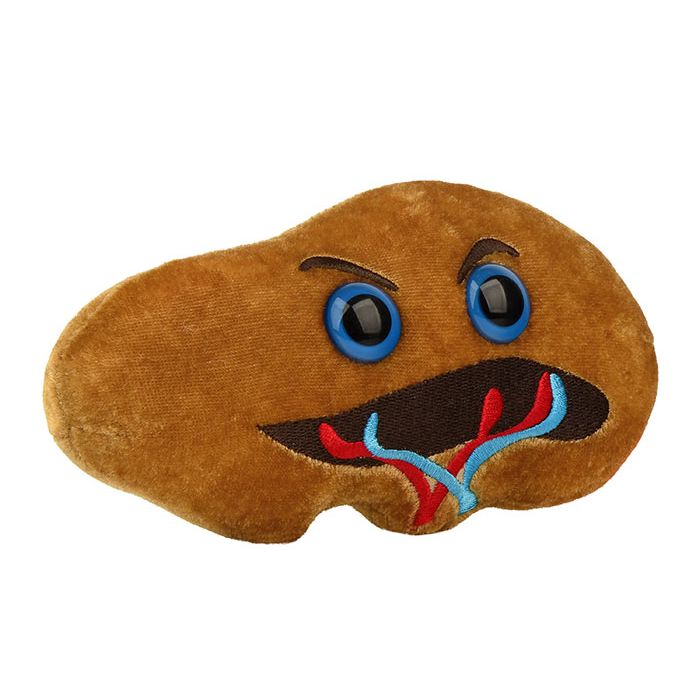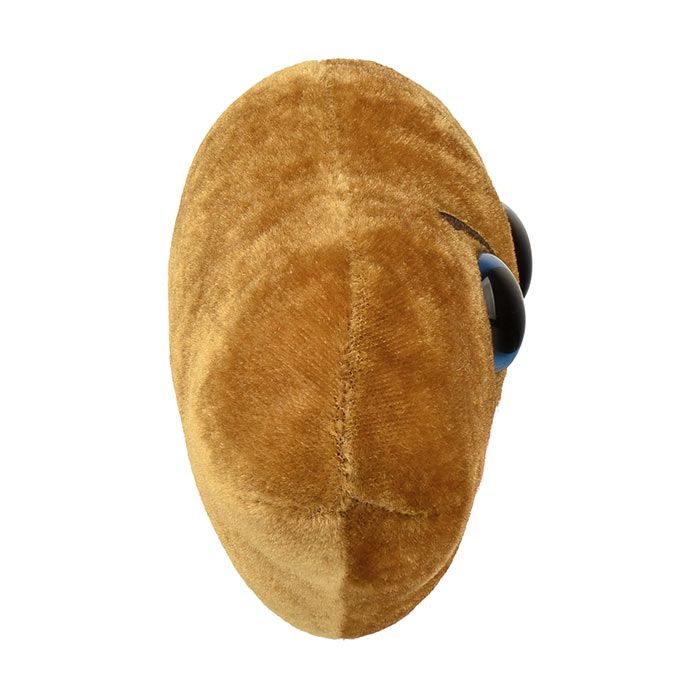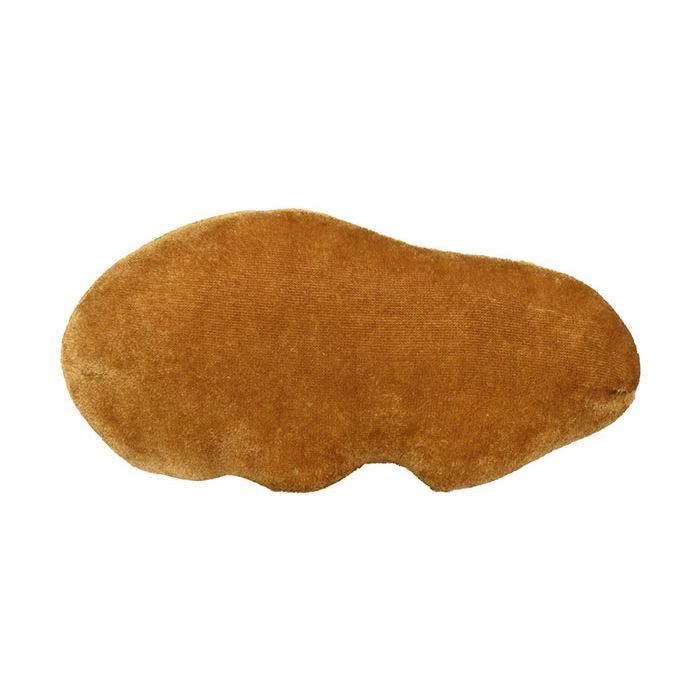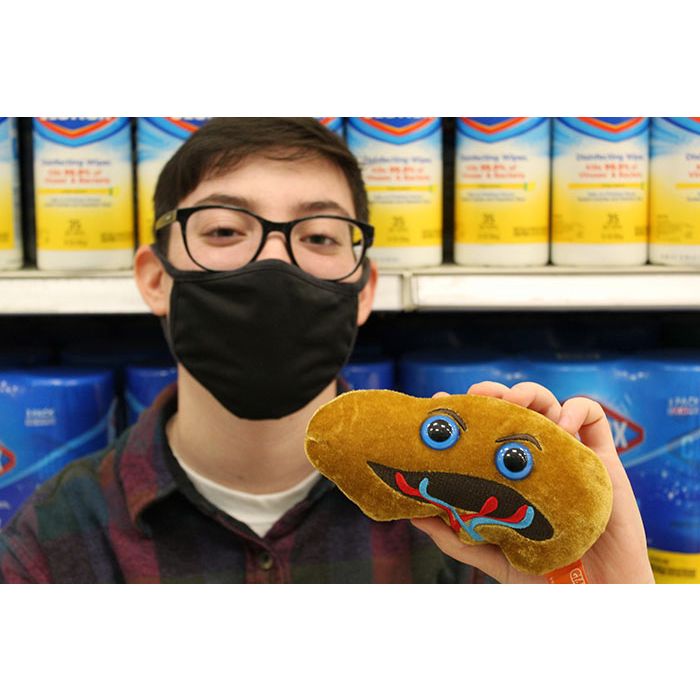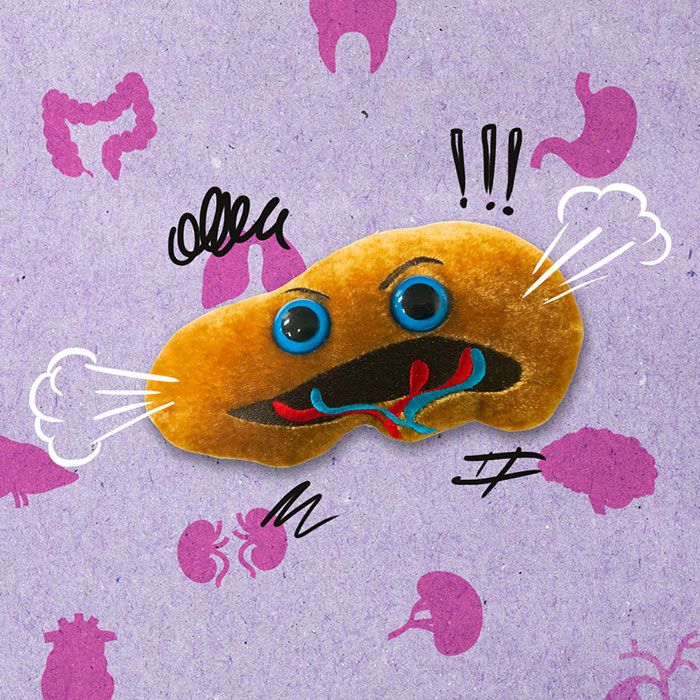Spleen
The spleen is a brave little organ nestled near the stomach. It is the largest organ of the lymphatic system. This is the body’s drainage system comprised of vessels that recycle bodily fluids and small organs that contain disease-fighting cells.
Our adorable plush representation of a Spleen provides a fun hands-on way to learn about your Lymphatic system, anatomy, biology, and how your body fights infections. GIANTmicrobes Spleen is soft, cuddly and makes the most memorable get well gift for friends, family and loved ones dealing with health issues and spleen surgery.
Unique gift for scientists, students, nurses, doctors, public health expert, educators, and anyone with a healthy sense of humor. Features detailed embroidery, high quality materials and includes an educational printed card with fascinating facts about this incredible organ.
Size: 15 x 7 x 4cm
Product Details
Additional Information
| Sizes | Giantmicrobes are based on actual microbes, cells, organisms and other critters, only 1,000,000 times actual size! Gigantic (GG) 40-60cm XL (XL) 25-38cm Original (PD) 12-20cm Keychain (KC) 5-10cm with clip |
|---|---|
| Materials | Plush from all new materials. Stuffed with polyester fiber fill. Surface washable: sponge with water & soap, air dry. |
| Packaging | Each plush microbe includes a printed card with fun, educational and fascinating facts about the actual microbe or cell. |
| Safety | Every product meets or exceeds U.S. and European standards for safety. For ages 3 and up. |
All about Spleen
FACTS: The spleen is a brave little organ nestled near the stomach. It is the largest organ of the lymphatic system. This is the body’s drainage system comprised of vessels that recycle bodily fluids and small organs that contain disease-fighting cells. The spleen stores a supply of red blood cells and white blood cells ready to attack and destroy bacteria and other invading microbes.
The term "vent your spleen" means to express anger. This dates back to medieval times when organs were thought to be the home of emotions. The spleen was the source of rage and ill temper. Thus, it became a metaphor for anger, spite or crankiness. Perhaps there is some truth in this since white blood cells can get rather enraged when foreign microbes pay a visit to your body.
White blood cells, or leukocytes, are the chief troops of the immune system. From the spleen, they travel around the body in the blood and in fluids of the lymphatic system. There are many kinds each with special skills. Neutrophils race to the scene when bacteria attack. They suffer large casualties creating the pus that forms on infections. B cells hurl antibodies at virulent viruses to neutralize them so T cells can move in for the kill. And when the dust finally settles, monocytes help clean up the place by digesting dead microbes.
The spleen, along with glands scattered along the routes of the lymph vessels, is also a major site for filtering blood. Lymph fluid forms between the body’s cells. It then drains into tiny capillaries that form into larger lymph vessels. Unlike blood, lymph fluid is not pumped. Rather it moves passively by the contraction of surrounding muscles. The spleen is complimented by another lymphoid organ, the thymus, and by lymphoid tissues such as the tonsils. The white blood cells stored in these organs and tissues are always ready to express their cellular rage and protect the body against nasty microbes.










